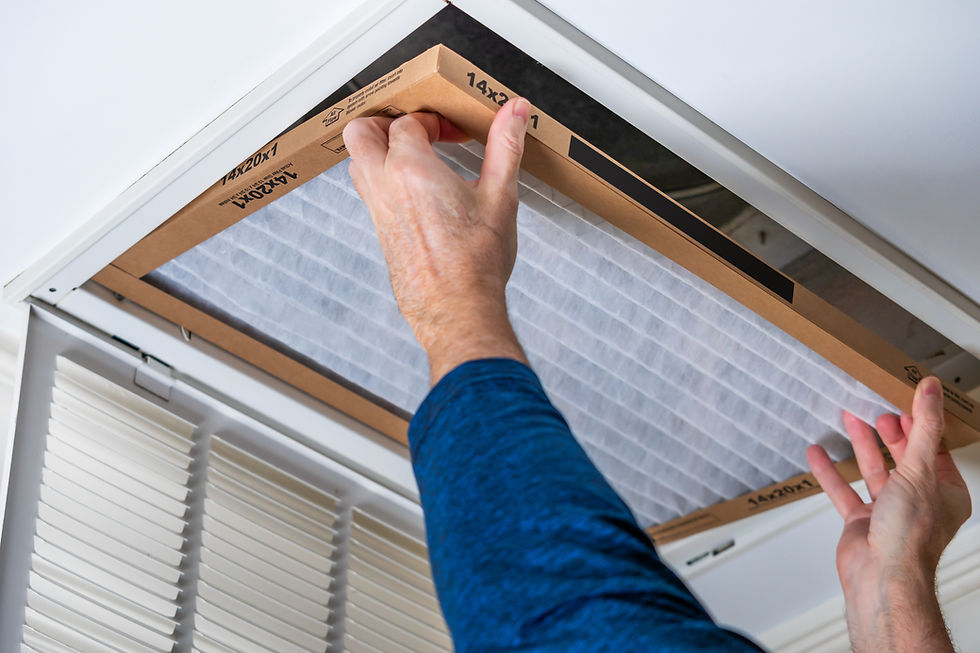How Often Should You Change Your AC Filter? A Complete Guide for Homeowners
- Apryl Thomas
- Aug 20, 2024
- 2 min read
Keeping your air conditioning system running smoothly involves regular maintenance, and one of the simplest yet most crucial tasks is changing your AC filter. But how often should you change your AC filter? The answer depends on several factors, including the filter type you use, your environment, and your household’s specific needs.

Why Changing Your AC Filter is Important
Your AC filter plays a vital role in maintaining your home’s air quality and ensuring your HVAC system operates efficiently. A dirty or clogged filter can lead to a host of problems, including:
Reduced airflow: This forces your system to work harder, increasing energy consumption and potentially leading to higher utility bills.
Decreased air quality: Dust, pollen, and other pollutants can circulate back into your home if the filter is not replaced regularly.
System breakdowns: Neglecting filter changes over time can lead to more serious issues, such as system overheating or component failure.
General Guidelines for Filter Replacement
While the exact frequency can vary, here are some general guidelines for how often you should change your AC filter:
Every 30-60 days for standard 1-3 inch filters: These are common in many homes and should be checked monthly.
Every 90 days for pleated filters: Pleated filters have more surface area and can last longer, but still need regular inspection.
Every 6-12 months for high-efficiency filters: If you use a HEPA filter or another high-efficiency option, these can last longer, but they’re often more expensive and may still require periodic checks.
Factors That Affect Filter Replacement Frequency
Household size: More people in the home means more dust, dirt, and debris for the filter to trap.
Pets: If you have pets, especially shedding breeds, you’ll likely need to replace your filter more frequently due to pet dander.
Allergies or respiratory issues: If you or others in your household have allergies or asthma you should change the filters more often to maintain cleaner air.
Location: Living in an area with high pollution or a dusty environment means your filter will clog more quickly.
Usage: If your AC runs constantly, especially during hot seasons, the filter should be replaced more often.
Signs It’s Time to Change Your Filter
Even with guidelines, it’s important to keep an eye out for signs that your filter needs changing:
Visible dirt and dust on the filter: If the filter looks clogged or dirty, it’s time to change it.
Increased allergy symptoms: More dust and allergens in the air could mean your filter is no longer effective.
Higher energy bills: A sudden spike in your electricity bill can indicate that your system is working harder than it should due to a clogged filter.
Poor airflow: Check your filter if you notice weaker air coming from your vents.
Conclusion
Regularly changing your AC filter is a small task that can significantly impact your home’s comfort, air quality, and energy efficiency. By understanding the factors influencing how often you should change your filter and actively looking for signs that it’s time for a replacement, you can ensure your HVAC system runs smoothly year-round.
Contact us for more personalized advice or to schedule a maintenance check. We’re here to help keep your home comfortable and air quality high.




Comments